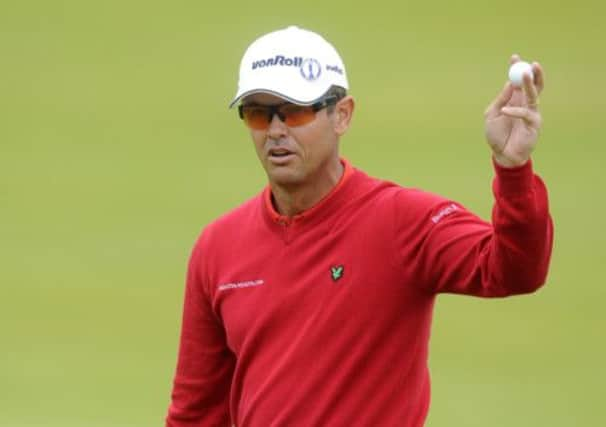Golf pros condemn ‘know-it-all attitude’ of amateurs


In Edinburgh yesterday, Andrew Coltart and Dean Robertson both said they’d been shocked by a “know-it-all” attitude permeating in the amateur ranks.
Coltart, who has been involved with the Scottish Golf Union in a mentoring role for the past two years, revealed he could “count on one hand” the number of phone calls he had received from squad members in that time. He added: “I think the difficulty seems to be that, by the time players get to 16 or 17, they think they know it all,” said the two-times European Tour winner and former Ryder Cup player. “I’ve got a fair bit of experience behind me, as has Dean, yet hardly anyone can be bothered to pick up the phone and that concerns me.
Advertisement
Hide AdAdvertisement
Hide Ad“There’s an incredible amount of free knowledge and support available these days that wasn’t there when Dean and I were going through the same system yet for some reasons these kids are failing to take advantage of those opportunities.
“Scottish people in particular seem to have an excuse culture. They blame pin positions, the weather, even the bed they’re sleeping in. Yet they’re the ones taking the head cover off and hitting it into the bunker.”
Robertson, the former Italian Open champion who now heads Stirling University’s golf programme, highlighted a case of course management advice being ignored by a leading Scottish player in this year’s Lytham Trophy.
Coltart revealed an experience of his own on the eve of the Scottish Amateur Championship this season. “We are trying to make these kids professional amateurs, as they are in countries like Sweden, yet I asked a player if I could check his yardage book and discovered there wasn’t a single note on it for 17 holes,” he said.
Both he and Robertson said they were keen to help amateurs turn pro “at the right time” and agreed that modern handicaps gave players “a false sense of how good they are”.